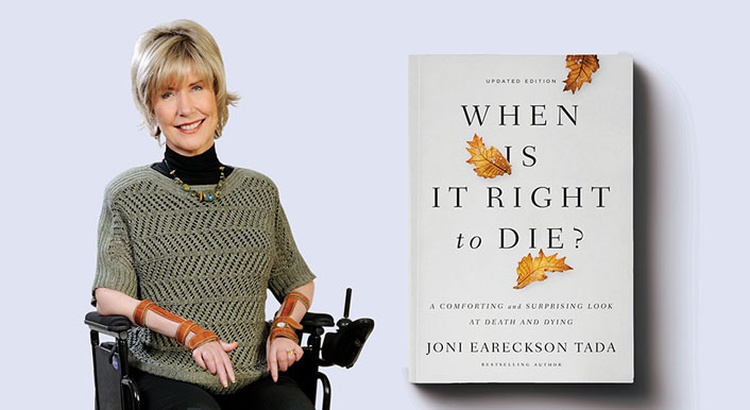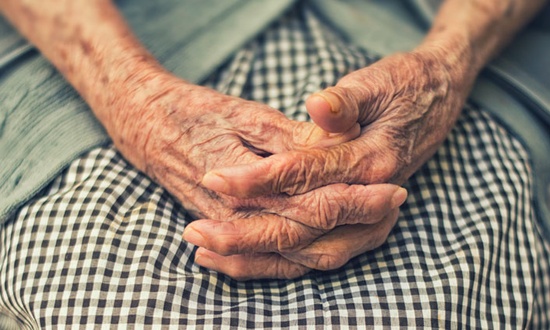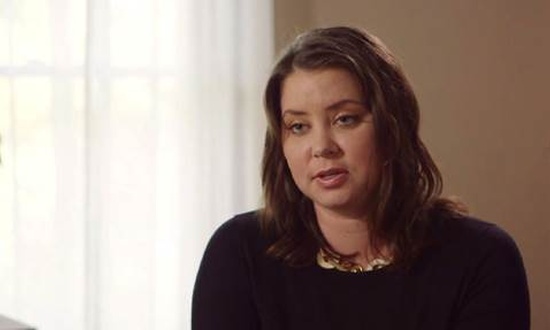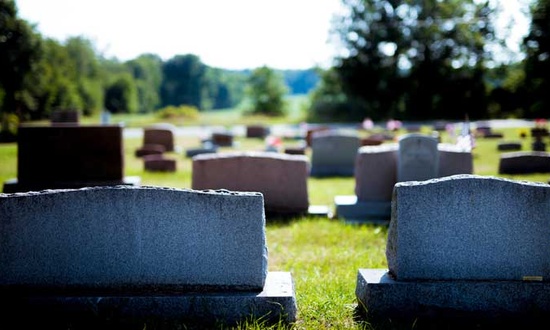Earlier this year I read through Joni Eareckson Tada’s book When Is It Right to Die?: A Comforting and Surprising Look at Death and Dying, which has been revised and updated to examine the current events, trending issues, and the rising acceptance of assisted suicide in this country.
I can’t say enough about When Is It Right to Die? Joni is not a professional ethicist pondering the theoretical; she is a wise and devoted Jesus-follower living out the actual, every day for the past fifty years. She has met and listened to thousands of people whose lives are often seen, sometimes even by themselves, as less than meaningful or worthwhile. She shares many of their stories with compassion and empathy. Joni is both a veteran and an expert on every facet of this issue—in fact, she has advised presidents concerning it. She knows the facts and the complexities, and offers no easy answers, but nonetheless she writes with profound wisdom and eternal perspective. There’s no one I would sooner listen to on this critical question than Joni. Like Jesus Himself, this book overflows with grace and truth.
Below is an article excerpted from the book:
Do I Have a Right to Die?
By Joni Eareckson Tada
No man is an island entire of itself; every man is a piece of the continent, a part of the main . . . Any man’s death diminishes me, because I am involved in mankind; and therefore never send to know for whom the bell tolls; it tolls for thee. —John Donne
For the moment, forget everything you’ve ever heard about right-to-die or right-to-life positions. Put aside the court rulings. Push out of your mind the tug-at-your-heart stories you’ve seen in the movies or read about online.
Now, with no one reading your thoughts, may I ask, “Do you know when it is right to die? For you? For your family?” Please, I realize this may not be a theoretical question for you. You may be one who could write a real-life tug-at-your-heart story. And you may have already made up your mind about how and when you want to die. Whatever your response, I want you to know that your decision matters.
It matters more than you realize.
Let me explain. Since at one time I served on a national council that drafted major civil rights legislation, my husband, Ken, then a high school government teacher, asked me to speak to his classes on the subject of legalizing euthanasia. This was well before California had legalized medically assisted death, but plenty of initiatives were testing the waters. Ken wanted me to talk to his students about the implications of a right-to-die law. The classroom was crowded with kids standing along the back and leaning against the chalkboards covering the walls.
I was surprised by how interested they were as I divulged my despair of earlier days. I admitted my relief that no right-to-die law existed when I was in the hospital and hooked up to machines. I then underscored how critical it was for every student to become informed and involved in shaping society’s response to the problem. Then I added, “What role do you think society should play in helping people decide when it is right to die?”
A few hands went up. I could tell by their answers that they felt society should take action to help hurting and dying people—some students insisting on life no matter how burdensome the treatment, and a few wanting to help by hurrying along the death process.
One student shared how his mother was getting demoralized by the burden of taking care of his sister with developmental delays. He felt society should, in his words, “do something.”
“Like what?” I playfully challenged.
“Like . . . I’m not sure, but society ought to get more involved in the lives of people like my mother.”
I glanced at Ken. He nodded, as if to give the go-ahead to take a free rein with this young man. “May I ask what you have done to get more involved?”
The student smiled and shrugged.
“How have you helped alleviate the burden? Have you taken your sister on an outing lately? Maybe to the beach?” I teased. “Have you offered to do some shopping for your mother? Maybe your mom wouldn’t be so demoralized, maybe she wouldn’t feel so stressed or burdened, if you rolled up your sleeves a little higher to help.”
A couple of his friends by the chalkboard laughed and threw wads of paper at him. “Okay, okay, I see your point,” he chuckled.
I smiled. “My point is this: Society is not a bunch of people way out there who sit around big tables and think up political trends or cultural drifts; society is you. Your actions, your decisions, matter. What you do or don’t do has a ripple effect on everyone around you. And on a smaller scale, your participation can even make a huge difference in what your family decides to do with your sister.”
The classroom fell silent, and I knew the lesson was being driven home. I paused, scanned the face of each student, and closed by saying, “You, my friends, are society.”
For more on the topic of euthanasia, here’s a blog I wrote a few years ago after a 29-year-old terminally ill woman chose to end her life under Oregon’s physician assisted suicide law. While we’re talking about past articles, I wrote one on euthanasia in 1986, citing relevant Scripture. If you’re interested, here it is. I talk about the difference between taking a life and permitting a death, and that we need to be careful not to play God. Most of it, I think, remains as relevant now as it was then.




